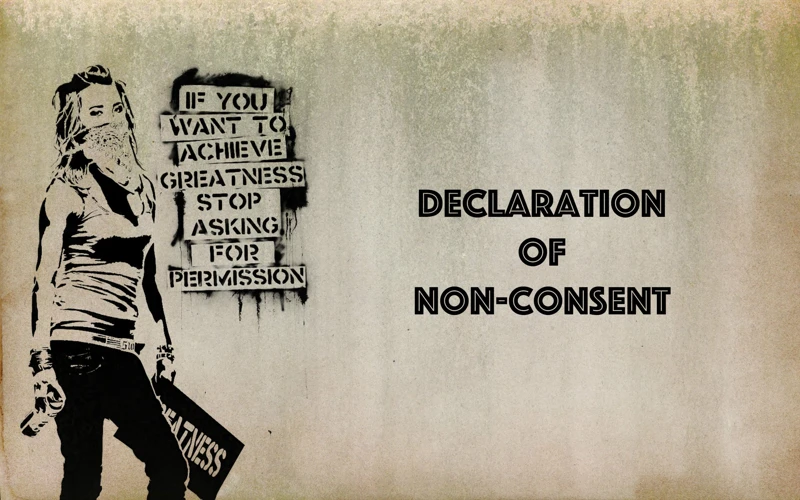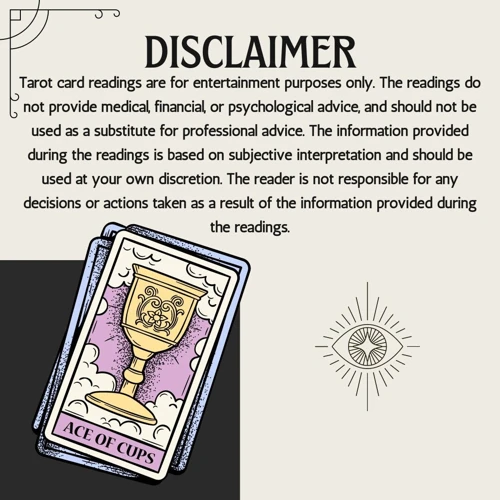Have you ever wondered about the ethics and responsibilities of a medium in psychic readings? As mediums have the unique ability to connect with the spirit realm and facilitate communication with those who have passed, it is crucial that they approach their work with honesty, authenticity, and respect. In this article, we will delve into the role of a medium and highlight the ethical principles that guide their practice. We will also explore the responsibilities that mediums have towards their clients and the common ethical dilemmas they may encounter. Additionally, we will discuss the importance of consent, confidentiality, and maintaining professional boundaries. So, let’s delve into the fascinating world of mediums and gain insight into the ethics and responsibilities that guide their interactions with clients.
Contents
- The Role of a Medium
- The Importance of Ethics
- Responsibilities of a Medium
- Common Ethical Dilemmas
- Importance of Consent and Free Will
- Confidentiality and Client Privacy
- Professionalism and Ethical Boundaries
- Continuous Learning and Development
- Conclusion
-
Frequently Asked Questions
- 1. Can anyone become a medium?
- 2. What methods do mediums use to connect with the spirit realm?
- 3. Do mediums have control over the messages they receive?
- 4. Can mediums communicate with specific deceased individuals?
- 5. How do mediums maintain ethics when delivering challenging messages?
- 6. Is confidentiality important in mediumship readings?
- 7. What should clients expect during a mediumship reading?
- 8. Can mediums predict the future?
- 9. What ethical boundaries should mediums adhere to?
- 10. How can mediums continue to grow and enhance their abilities?
- References
The Role of a Medium

A medium plays a vital role in bridging the gap between the physical world and the spirit realm. They possess the remarkable ability to connect with the spirit realm and communicate with entities that have passed away. This connection allows them to deliver messages, guidance, and insights from the spiritual realm to those seeking answers and closure. By facilitating communication between the living and the deceased, mediums offer comfort, healing, and validation to their clients. They act as a conduit, relaying messages and information from departed loved ones, spirit guides, or angelic beings. To perform their role effectively, mediums need to develop their psychic abilities and establish a strong link with the spiritual realm. By honing their skills through practices such as meditation, energy healing, and continuous learning and development, mediums can enhance their connection with the spirit world and serve as a compassionate intermediary between realms.
1. Connect with Spirit Realm
In order to fulfill their role as a medium, it is essential to establish a strong connection with the spirit realm. This connection allows mediums to tap into the energy and consciousness of those who have passed away. Connecting with the spirit realm requires mediums to raise their vibrations and open themselves up to the presence of spirits. They often achieve this through various techniques such as meditation, prayer, and energy work. By quieting their minds and focusing their intent, mediums create a space for spiritual communication to occur. They may also use tools like tarot cards, crystals, or automatic writing to aid in the connection process. It is important for mediums to approach this connection with reverence and respect, as they are essentially entering a sacred space. Through their connection with the spirit realm, mediums are able to receive messages, guidance, and insights that can provide comfort, healing, and closure to their clients. This ability to connect with the spirit realm is what sets mediums apart from other types of psychics. If you’re interested in learning more about how to prepare for a mediumship reading, you can check out our article on preparing for a mediumship reading for helpful tips and guidance.
2. Facilitate Communication
A medium’s primary responsibility is to facilitate communication between the living and the spirit realm. They act as an intermediary, relaying messages, guidance, and insights from departed loved ones or spirit guides to their clients. To effectively facilitate this communication, mediums employ various techniques and methods:
- Clairvoyance: They use their ability to see images, symbols, or visions from the spirit realm.
- Clairaudience: They receive messages through hearing, either externally or internally in their mind.
- Clairsentience: They sense or feel emotions, physical sensations, or energies associated with the spirits.
- Trance Channeling: Some mediums have the ability to enter a deep trance state wherein the spirit can speak directly through them.
Mediums also utilize different divination tools, such as tarot cards or oracle decks, to enhance their ability to receive and interpret messages. They create a sacred space for their readings, which may include setting up an altar or using crystals and candles to create a conducive environment for spirit communication. It is essential for mediums to approach this communication with respect, integrity, and empathy, ensuring that the messages they convey are clear, accurate, and compassionate. By distinguishing mediumship from other psychic practices, mediums are able to provide a unique service that focuses specifically on connecting with spirits and relaying their messages to those seeking guidance.
The Importance of Ethics

The importance of ethics in psychic readings cannot be overstated. As mediums are entrusted with sensitive and deeply personal information, it is crucial that they approach their practice with a strong sense of honesty and authenticity. This means providing accurate and truthful information without embellishment or deception. Additionally, mediums must prioritize confidentiality by respecting the privacy of their clients and maintaining the utmost discretion. Setting clear boundaries and obtaining consent from clients are also essential ethical considerations. Boundaries ensure that mediums do not overstep their role or invade the personal space of the individual seeking their services. Consent allows clients to have agency over their own experiences and ensures that they are actively participating in the reading. By upholding these ethical principles, mediums create a safe and trustworthy environment for their clients, fostering a sense of respect, integrity, and accountability in their practice.
1. Honesty and Authenticity
- Be truthful: One of the core ethical principles for mediums is to be honest in their readings. They should strive to provide accurate information and relay messages as they receive them from the spirit realm.
- Avoid embellishments or guessing: Mediums should refrain from embellishing or making assumptions about the messages they receive. It is essential to present the information as it comes through, without adding personal interpretations or inventing details.
- Admit limitations: Honesty also includes acknowledging when there are limitations to their abilities. Mediums should not claim expertise in areas or provide information they are not confident about. It’s important to be transparent about what they can and cannot do.
- Be authentic: Being true to oneself is crucial in mediumship. Mediums should develop their unique style and approach that aligns with their own values and intuition. It’s important to resist the temptation to mimic others or present a false persona.
- Acknowledge subjective interpretations: Mediums should acknowledge that readings involve a degree of subjectivity. The messages may be filtered through their own perceptions and experiences, so it’s important to make that clear to clients.
2. Confidentiality
- Respect Confidential Information: Confidentiality is a fundamental ethical principle that mediums must uphold. When clients seek the guidance of a medium, they often share personal and sensitive information about themselves and their loved ones. It is the responsibility of the medium to ensure that this information remains confidential. Any details shared during a session, whether it pertains to the client’s personal life or the messages received from the spirit realm, should be kept strictly confidential. A breach of confidentiality can lead to a loss of trust between the medium and the client, potentially causing harm and discomfort.
- Maintain Client Privacy: In addition to respecting the confidentiality of the information shared during a session, mediums must also maintain their clients’ privacy. This means taking appropriate measures to secure client records, ensuring that they are not accessible to unauthorized individuals. Mediums should also be mindful of discussing client sessions or sharing any identifying information without the explicit consent of the client. Respecting client privacy not only protects their personal information but also fosters a safe and trusting environment for individuals to seek guidance and support.
3. Boundaries and Consent
Establishing boundaries and obtaining consent are essential aspects of the ethical practice of mediumship. Boundaries refer to the limits that mediums set to maintain professionalism and protect both themselves and their clients. These boundaries can include personal space, emotional boundaries, and the types of questions or topics that mediums are comfortable addressing during a reading. By setting clear boundaries, mediums ensure that the exchange remains respectful, comfortable, and within their scope of practice.
Consent is another crucial element in ethical mediumship. Obtaining consent involves seeking permission from the client to connect with their loved ones in the spirit realm and convey any messages or information received. Consent can be obtained verbally or in writing, depending on the medium’s preference and the nature of the reading. It is important for mediums to explain the process, provide information about what to expect, and allow clients to freely choose whether they wish to proceed with the reading.
When it comes to boundaries and consent, open and transparent communication is key. Mediums should clearly communicate their boundaries to clients before the reading begins to ensure that both parties are on the same page. They should also obtain consent and address any concerns or questions the client may have to promote a safe and comfortable experience. By respecting boundaries and obtaining consent, mediums uphold the ethical principles of their practice and create a trusting and empowering environment for their clients.
Responsibilities of a Medium

Being a medium comes with significant responsibilities that go beyond connecting with the spirit realm. A medium must engage in self-reflection and personal growth to ensure they are in a state of balance and alignment. This allows them to provide the best possible service to their clients. Professionalism is crucial for mediums, as they are dealing with sensitive and intimate matters. They must conduct themselves with the utmost professionalism, maintaining ethical boundaries and treating their clients with respect and empathy. Additionally, mediums should prioritize continuous learning and development to enhance their skills and stay updated with best practices in the field. This commitment to growth ensures that mediums are always striving to provide the most accurate and compassionate guidance to those seeking their assistance. By embracing these responsibilities, mediums can serve as a source of comfort, healing, and enlightenment for their clients.
1. Self-Reflection and Personal Growth
Self-reflection and personal growth are fundamental responsibilities for a medium. As a medium, it is essential to regularly engage in self-reflection to gain a deeper understanding of oneself and how personal beliefs and biases may impact the messages and interactions with clients. This introspection allows mediums to identify any personal issues or unresolved emotions that could potentially interfere with the clarity and accuracy of their readings. By addressing these issues through therapy, self-care practices, or energetic healing modalities, mediums can ensure they are providing the most authentic and beneficial experience for their clients. Additionally, personal growth is an ongoing journey for a medium. Continuously seeking opportunities for personal development, such as attending workshops, seminars, or specialized training programs, can enhance their skills and abilities. A commitment to personal growth allows mediums to expand their knowledge, refine their techniques, and stay abreast of ethical guidelines and best practices. Ultimately, self-reflection and personal growth are integral to maintaining a high standard of professionalism and promoting the well-being of both the medium and their clients.
2. Professionalism
Professionalism is a key responsibility for mediums as they navigate the sensitive and often emotional nature of psychic readings. Maintaining professionalism ensures that clients feel respected, valued, and safe during their sessions. One aspect of professionalism for mediums involves creating a professional environment. This can include having a dedicated space for readings that is clean, comfortable, and free from distractions. It also involves maintaining a professional appearance and demeanor, projecting a sense of trustworthiness and competence. Additionally, mediums should strive to adhere to ethical guidelines and standards set by reputable psychic organizations, which can vary depending on location. This means conducting themselves with integrity, avoiding fraudulent activities, and being transparent with their clients about their abilities and limitations. Clear communication is another essential aspect of professionalism in mediumship. Mediums should establish clear expectations with clients regarding the purpose and potential outcomes of readings, as well as any limitations or uncertainties. They should also communicate in a compassionate and respectful manner, ensuring that clients feel heard and supported throughout the process. Professionalism in mediumship demonstrates a commitment to maintaining a high standard of service and ethical conduct in order to provide the best possible experience for clients.
3. Continuous Learning and Development
Continuous learning and development is a crucial aspect of being a responsible and ethical medium. In the rapidly evolving field of mediumship, it is essential for a medium to stay updated with the best practices and advancements in the industry. By staying updated with best practices, mediums can ensure that they are providing their clients with the highest level of service and accuracy. They can do this by attending workshops, seminars, and conferences, where they can learn from experienced mediums and experts in the field. Additionally, mediums should engage in regular self-reflection and evaluation of their own abilities and performance. This self-reflection allows them to identify areas for improvement and focus on personal and professional growth. Seeking feedback from clients, mentors, or fellow mediums can provide valuable insights and guidance. Mediums should also explore various techniques, tools, and modalities to enhance their abilities and expand their repertoire. By embracing continuous learning and development, mediums can ensure that they are providing the best possible experience for their clients and honoring the sacred connection they have with the spirit world.
Common Ethical Dilemmas

Within the realm of psychic readings, mediums often face common ethical dilemmas that require careful consideration and integrity. One such dilemma is the possibility of giving false hope to clients. While mediums strive to provide comfort and guidance, it is crucial to maintain honesty and authenticity in their readings. It is important to deliver messages with sensitivity, while also acknowledging the limitations of psychic abilities. Another ethical dilemma is the potential for interfering with free will. Mediums must respect the autonomy and choices of their clients, refraining from providing unsolicited advice or influencing decisions. Additionally, mediums must be mindful of financial exploitation, ensuring that they charge fair and reasonable fees for their services. By navigating these ethical dilemmas with integrity and staying true to their professional standards, mediums can uphold the trust and confidence of those seeking their insights.
1. Giving False Hope
The ethical dilemma of giving false hope is a significant concern for mediums in psychic readings. While it is natural for individuals seeking guidance and comfort to desire positive outcomes, it is essential for mediums to maintain honesty and integrity in their communications. Offering false hope can potentially lead clients astray, creating unrealistic expectations or dependency on the information provided. It is crucial for mediums to be transparent and share information in a balanced and responsible manner, emphasizing that the future is not set in stone and that individuals have the power to shape their own paths. By providing honest and authentic insights, mediums can empower clients to make informed decisions and take proactive steps towards their goals. It is essential for mediums to remember their ethical responsibility of respecting the vulnerability and emotional well-being of their clients, always ensuring that the messages they convey are based on genuine connections and spiritual guidance rather than false promises.
2. Interfering with Free Will
Interfering with free will is a significant ethical dilemma that mediums may encounter during psychic readings. It pertains to the notion of overstepping boundaries and imposing one’s own will or desires onto the client. Mediums should always prioritize the autonomy and free will of the individuals seeking their guidance. It is crucial to remember that the role of a medium is to provide information, insight, and support, rather than make decisions on behalf of the client. By seeking permission and obtaining consent from the client before initiating any form of spiritual intervention or guidance, mediums ensure that they are respecting the client’s free will.
One way to navigate this ethical challenge is by emphasizing the importance of personal empowerment and self-responsibility during the reading. Mediums can encourage clients to trust their own intuition and make choices based on their own inner guidance. By promoting self-empowerment, mediums empower the client to make decisions that align with their own values, beliefs, and desires.
It is also crucial for mediums to refrain from using their influence to manipulate or coerce the client into taking a particular course of action. They should avoid making predictions that instill fear or pressure the client into making decisions that they are not comfortable with. Providing information and insights should be done with the intention of empowering the client to make informed choices that promote their own growth and well-being.
Mediums must be mindful of respecting the free will of their clients and should always aim to empower rather than interfere. By maintaining ethical boundaries and promoting personal autonomy, mediums can ensure that their readings are conducted with integrity, compassion, and respect for the individual’s right to make their own choices.
3. Financial Exploitation
Financial exploitation is an ethical dilemma that mediums may encounter in their practice. This occurs when a medium takes advantage of a client’s vulnerability or desperation by charging exorbitant fees or pressuring them into frequent and unnecessary sessions for financial gain. It is crucial for mediums to maintain integrity and prioritize the well-being of their clients above financial considerations.
In order to avoid financial exploitation, mediums should ensure that their fees are reasonable and transparent. They should provide clear information about their pricing structure upfront, so clients are aware of the financial commitment involved. Additionally, mediums should be cautious about making promises of specific outcomes in exchange for additional payments. Such practices can give false hope and exploit clients who are seeking answers or closure.
Mediums should never use their position to manipulate clients into spending beyond their means or engage in unethical business practices. It is important to approach financial matters with transparency, honesty, and empathy. Mediums should always prioritize the well-being of their clients and focus on providing genuine guidance and support without exploiting their vulnerabilities.
Importance of Consent and Free Will

When it comes to psychic readings, the importance of consent and free will cannot be overstated. As mediums delve into the spiritual realm and uncover insights that may affect a person’s life, it is crucial to seek permission before delving into someone’s personal energy and providing them with psychic guidance. Mediums should always respect the boundaries of their clients and obtain explicit consent before conducting a reading. It is also important to remember that individuals have the right to make their own choices and decisions, and mediums should never interfere with their free will. The role of a medium is to provide information and guidance, not to manipulate or impose their beliefs on others. By honoring the principles of consent and free will, mediums can create a safe and empowering space for their clients to explore their spiritual journey and make informed decisions.
1. Seek Permission
- Seek Permission: One of the fundamental ethical principles for mediums is to seek permission before initiating a psychic reading or any form of spiritual communication. This is crucial as it respects the autonomy and free will of the client. Before delving into the reading, mediums should clearly explain the nature of the session and obtain the explicit consent of the individual involved. Seeking permission is especially important when performing mediumship readings, as it involves connecting with spirits and entities from the spirit realm. By requesting permission, mediums ensure that the client is open and receptive to the experience, creating a safe and respectful environment for both parties involved.
2. Provide Informed Consent
When it comes to psychic readings and mediumship sessions, it is essential for mediums to prioritize the concept of informed consent. This means that the medium must obtain the explicit consent of the client before conducting any readings or spiritual work. Providing informed consent involves ensuring that the client understands the nature of the session, the purpose of the reading, and what they can expect from the experience. The medium should discuss any potential risks or limitations of the session, and the client should have a clear understanding of what information may be revealed during the reading. It is crucial for mediums to create a safe and comfortable environment where clients feel empowered to provide or withdraw consent at any point during the session. This ensures that the client is fully aware of their participation in the reading and can make informed decisions about their involvement. Additionally, mediums should inform clients about their own ethical guidelines and boundaries, allowing clients to decide whether they are comfortable proceeding with the reading. By obtaining informed consent, mediums demonstrate their respect for client autonomy and reinforce the importance of transparency and open communication throughout the spiritual session.
Confidentiality and Client Privacy

Confidentiality and client privacy are of utmost importance in the realm of psychic readings. As a medium, it is crucial to respect confidential information shared by clients during sessions. Any personal details or sensitive information disclosed by clients should be treated with the utmost care and kept strictly confidential. This includes information about their personal life, relationships, health, and any other sensitive matters. Maintaining client privacy is essential, and mediums should ensure that all client records, notes, and conversations are securely stored and protected from unauthorized access. It is also vital for mediums to obtain informed consent from clients before sharing any personal information or stories publicly. Respecting client confidentiality fosters trust and allows individuals to feel safe and secure while seeking guidance from a medium. By upholding these ethical standards, mediums create a nurturing environment where clients can freely share their concerns without fear of judgment or breach of privacy.
1. Respect Confidential Information
Respecting confidential information is a crucial aspect of the ethics and responsibilities of a medium. When clients seek the guidance of a medium, they often share personal and sensitive information about themselves and their loved ones. It is of utmost importance that mediums respect the confidentiality of the information shared with them during a reading. This means that mediums should never disclose or share any personal details or messages without the explicit permission of the client. Confidentiality ensures that clients feel safe and secure in sharing their experiences, emotions, and memories without fear of judgment or breach of privacy.
As a medium, maintaining confidentiality involves refraining from discussing the details of a reading with anyone else, unless it is necessary for the well-being or safety of the client or others. It is essential for mediums to understand the ethical and legal implications of sharing confidential information, as well as the potential impact it can have on their clients’ lives. By upholding the principle of confidentiality, mediums create a trusting and sacred space for their clients to explore their spiritual journey and gain insights from the spirit realm.
2. Maintain Client Privacy
When it comes to maintaining client privacy, mediums have a crucial responsibility to uphold confidentiality and ensure that the personal information shared during a psychic reading remains strictly confidential. Respecting the private and sensitive nature of the information exchanged is essential for building trust and creating a safe space for clients. Mediums should take appropriate measures to safeguard client privacy, both during and after the reading. This includes keeping all client information secure and protected from unauthorized access. It is important not to share any details or discussions that occur during a reading without the explicit consent of the client. This includes refraining from discussing specific cases or sharing identifying information with others, unless required by law or with the explicit permission of the client. By maintaining client privacy, mediums demonstrate their commitment to professionalism, ethics, and the well-being of their clients.
Professionalism and Ethical Boundaries

Professionalism and ethical boundaries are fundamental aspects of a medium’s practice. When engaging with clients, mediums must maintain a high level of professionalism both in their communication style and their overall conduct. It is crucial for mediums to exhibit empathy, compassion, and active listening skills when interacting with clients, creating a safe and supportive environment for them to share their concerns and experiences. Additionally, mediums must refrain from passing judgment or imposing their personal beliefs during readings, respecting the diverse perspectives and experiences of their clients. It is important for mediums to understand the importance of referral when encountering situations beyond their expertise or scope of practice. They should be able to recognize when a client requires additional support or therapeutic intervention and provide appropriate referrals to ensure their client’s well-being. By adhering to these principles of professionalism and ethical boundaries, mediums can foster trust, respect, and a sense of safety for their clients.
1. Communication Style
- Clear and Concise: When it comes to communication style, a medium should strive to be clear and concise in their delivery of messages. They should avoid using vague or ambiguous language that may confuse or mislead the client. Instead, they should express themselves in a straightforward manner, using simple and easily understandable words.
- Empathetic and Compassionate: A medium should exhibit empathy and compassion in their communication with clients. They should be sensitive to the emotions and experiences of the client and approach their interactions with kindness and understanding. By creating a supportive and non-judgmental environment, the medium can help the client feel comfortable and open to receiving the messages from the spirit realm.
- Active Listening: Active listening is an essential component of effective communication as a medium. It involves giving full attention to the client, both verbally and non-verbally, to understand their needs and concerns fully. This includes maintaining eye contact, nodding to show understanding, and providing verbal affirmations to validate the client’s experiences.
- Respectful Language: Mediums should use respectful language when communicating with clients. They should avoid derogatory or judgmental remarks and refrain from making assumptions or imposing their own beliefs onto the client. By using respectful language, mediums create a safe and inclusive space where clients feel valued and respected.
- Adaptability: Every client is unique, and a medium should be adaptable in their communication style to meet the individual needs of each client. Some clients may prefer a direct and to-the-point approach, while others may require more gentle and nurturing communication. The medium should be able to adjust their communication style accordingly, ensuring that the client feels comfortable and understood.
2. Refrain from Judgement
When it comes to ethical boundaries, one important responsibility of a medium is to refrain from judgment. Being nonjudgmental is crucial because it allows the medium to create a safe and accepting space for clients to share their experiences without fear of criticism or ridicule. Let’s explore this responsibility further:
- Suspend Personal Beliefs: Mediums must set aside their own personal beliefs and biases in order to provide an unbiased and objective experience for their clients. They should not impose their own values, opinions, or judgments onto the messages they receive from the spirit realm.
- Respect Diversity: A medium works with clients from diverse backgrounds, cultures, and belief systems. It is essential to honor and respect these differences, ensuring that all clients feel seen, heard, and validated. By embracing diversity, mediums foster an inclusive environment that promotes trust and openness.
- Practice Empathy: A key aspect of refraining from judgment is cultivating empathy. Mediums should strive to understand and empathize with their clients’ experiences, emotions, and challenges. This empathy allows mediums to offer compassionate support and guidance without passing judgment or making assumptions.
- Provide Objective Interpretation: During a reading, a medium receives information from the spirit realm. It is important for the medium to interpret and relay this information objectively, without imposing personal judgments or opinions. Their role is to deliver the messages received accurately and without bias.
By adhering to these principles, mediums create a space where individuals can openly share their experiences, beliefs, and concerns, free from judgment. This fosters a trusting and safe environment where clients can receive a meaningful and valuable reading.
3. Proper Referral
Proper referral is an important responsibility of a medium when they encounter situations or issues that fall outside their area of expertise or scope of practice. It is essential for mediums to recognize their limitations and refer clients to other professionals who can better address their specific needs. This could include referrals to therapists, counselors, or other spiritual practitioners who specialize in the particular area that the client requires assistance with. By making proper referrals, mediums prioritize the well-being and best interests of their clients, ensuring they receive the appropriate support and guidance. A medium should be transparent, honest, and open about their capabilities and limitations, and recommend other professionals who can offer the necessary expertise. By doing so, mediums demonstrate their commitment to providing comprehensive care for their clients, even if it means directing them to someone else who can better meet their specific needs.
Continuous Learning and Development
Continuous learning and development are essential for mediums to thrive in their practice and provide optimal guidance to their clients. As the world of spirituality and mediumship evolves, it is crucial for mediums to stay updated with the latest best practices and techniques. This can be achieved through attending workshops, seminars, or courses specific to mediumship and psychic development. By immersing themselves in a community of like-minded individuals and experts, mediums can gain valuable insights, expand their knowledge, and refine their abilities. Additionally, mediums can seek personal and professional growth by exploring related disciplines such as energy healing, astrology, or tarot reading. By broadening their understanding of various spiritual modalities, mediums can add depth and versatility to their practice. Continuous learning empowers mediums to refine their skills, enhance their connection with the spirit realm, and provide meaningful guidance and support to their clients.
1. Stay Updated with Best Practices
Staying updated with best practices is essential for mediums to maintain ethical standards and provide quality services to their clients. The field of mediumship is constantly evolving, and new insights, techniques, and tools are being discovered. To ensure they are delivering the highest level of service, mediums must stay current with the latest developments in the field. This means regularly attending workshops, conferences, and seminars related to mediumship to learn from experienced professionals and gain new perspectives. Engaging in peer discussions and collaboration can also be beneficial, as it allows mediums to share knowledge, exchange ideas, and learn from each other’s experiences. Additionally, mediums should stay abreast of industry regulations and ethical guidelines to ensure they are operating within legal and ethical boundaries. By continuously enhancing their knowledge and staying updated with best practices, mediums can provide their clients with the highest level of care, accuracy, and integrity.
2. Seek Personal and Professional Growth
Seeking personal and professional growth is an essential responsibility for mediums, as it allows them to continually develop their skills and improve their abilities. Here are some ways mediums can focus on their personal and professional growth:
- Engage in Self-Reflection: Mediums should regularly reflect on their experiences, beliefs, and practices. This introspection helps them gain insight into their strengths, areas for improvement, and any personal biases that may affect their readings. By acknowledging and addressing these aspects, mediums can enhance their accuracy and provide more helpful and unbiased guidance.
- Attend Workshops and Classes: Mediums can expand their knowledge and hone their skills by participating in workshops, classes, and seminars focused on mediumship. These educational opportunities provide mediums with the chance to learn from experienced instructors, gain new perspectives, and discover advanced techniques to refine their abilities.
- Join Professional Associations: Being a part of professional associations that focus on mediumship allows mediums to connect with like-minded individuals and stay updated on industry trends and best practices. These associations often provide resources, networking opportunities, and conferences or conventions where mediums can learn from renowned experts in the field.
- Seek Mentorship: Mediums can benefit greatly from having a mentor who can provide guidance, support, and constructive feedback. Mentorship programs or relationships with experienced mediums can offer valuable insights, help mediums navigate challenging situations, and aid in their personal and professional growth.
- Continue Research and Study: Mediums should dedicate time to researching and studying various aspects related to mediumship, such as spiritual philosophies, psychic development, and psychic protection. By staying updated with the latest theories and practices, mediums can expand their knowledge base and incorporate new methods into their readings.
By actively seeking personal and professional growth, mediums can ensure that they are consistently evolving in their practice, deepening their connection with the spirit realm, and providing the highest level of service to their clients.
Conclusion
In conclusion, the ethics and responsibilities of a medium in psychic readings are of utmost importance to ensure a positive and ethical experience for both the medium and their clients. It is crucial for mediums to approach their work with honesty, authenticity, and a deep sense of respect for the spirit realm. They must prioritize the well-being and empowerment of their clients, maintaining confidentiality and respecting their privacy. Additionally, mediums must establish and adhere to professional boundaries, communicating in a compassionate and non-judgmental manner. Continuous learning and personal growth are essential for mediums to stay updated with best practices and enhance their abilities.
Throughout this article, we have explored the role of a medium, the importance of ethics, and the responsibilities that come with it. We have also examined common ethical dilemmas that mediums may face and the significance of consent and free will in psychic readings. By adhering to ethical guidelines and continuously refining their craft, mediums can provide a valuable and meaningful service to those seeking guidance and connection with the spiritual realm.
Frequently Asked Questions
1. Can anyone become a medium?
While psychic abilities exist within all individuals to some degree, not everyone has the natural inclination or dedication required to develop mediumship skills. Mediumship requires a deep connection with the spiritual realm and a commitment to continuous learning and personal growth.
2. What methods do mediums use to connect with the spirit realm?
Mediums employ various techniques, such as meditation, trance states, automatic writing, or psychometry, to establish a connection with the spirit realm. These methods help mediums attune their energy and raise their vibration, allowing them to receive messages and information from the spiritual realm.
3. Do mediums have control over the messages they receive?
Mediums act as conduits for spirit communication but do not have control over the specific messages they receive. They trust in the wisdom of the spirit realm and deliver the messages they receive without altering or manipulating them to align with personal beliefs or desires.
4. Can mediums communicate with specific deceased individuals?
Mediums can connect with specific deceased individuals; however, it is essential to note that spirits have free will as well. While mediums can make a sincere effort to connect with a specific person, it is ultimately up to the spirit to communicate or make their presence known during a reading.
5. How do mediums maintain ethics when delivering challenging messages?
When delivering challenging or sensitive messages, mediums approach the situation with empathy, compassion, and sensitivity. They focus on delivering the message in a supportive and respectful manner, emphasizing the importance of the information for the recipient’s growth or healing.
6. Is confidentiality important in mediumship readings?
Absolutely. Confidentiality is crucial in mediumship readings as it creates a safe and trusting space for clients. Mediums must respect the privacy of the information shared during a reading and refrain from disclosing it to others without the client’s explicit consent.
7. What should clients expect during a mediumship reading?
Clients can expect an open and non-judgmental environment during a mediumship reading. The medium will seek to make a connection with the spirit realm and deliver any messages or insights they receive. However, it’s important to remember that each reading is unique, and the information received will depend on the spirits present and the client’s specific needs.
8. Can mediums predict the future?
Mediums primarily focus on connecting with the spirit realm to provide guidance and messages from departed loved ones. While they may receive glimpses of future possibilities, their main purpose is to offer healing, closure, and support in the present moment rather than predict future events.
9. What ethical boundaries should mediums adhere to?
Mediums should maintain ethical boundaries by respecting the client’s boundaries and consent, refraining from providing financial or legal advice, and avoiding influencing or interfering with a client’s personal decisions or free will.
10. How can mediums continue to grow and enhance their abilities?
Mediums can continue to grow by engaging in ongoing learning and development. This includes attending workshops, seminars, and classes focused on mediumship, expanding their knowledge of different spiritual traditions, and seeking guidance and mentorship from experienced mediums.







